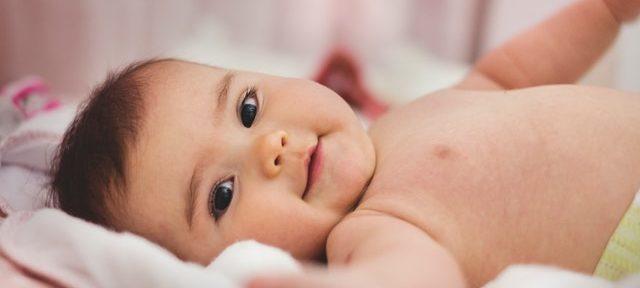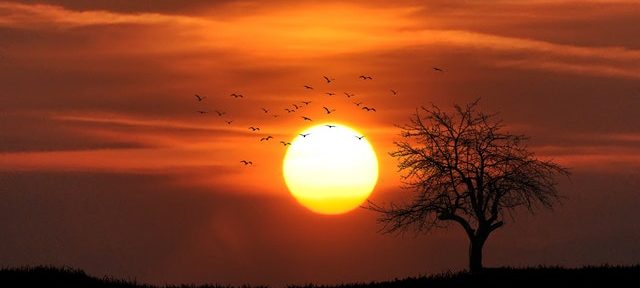The evolutionary tradeoff between longevity and reproduction changes with gender.
There’s the usual advice. If you want to live longer, exercise. Eat green vegetables. Avoid stress.
Oh—and be careful about smelling the opposite sex.
Scientists have known for some time that exposing flies and mice to pheromones of the opposite sex can change the pace at which the animals age. The question is, why does this happen?
Evolutionary biology provides one framework for understanding the effect, by positing a tradeoff between investing in reproduction on the one hand, and in repair and maintenance on the other. The framework also suggests an explanation for gender differences in aging: Since males and females have very different relationships to reproduction, the ideal tradeoff between reproduction and repair looks different for each of them.
Michael Garratt, a professor genetics and aging at the University of Michigan, is a recent recipient of a grant from the American Federation for Aging Research (AFAR) to study how olfaction can transmit social signals that regulate aging. Nautilus caught up with him earlier this month.
What is the connection between reproduction and aging?
Evolutionary biology predicts that investing in reproduction causes aging indirectly. Imagine that your body has protective mechanisms which can let you live longer, but that they’re energetically costly. Evolutionary theories of aging would say that there’s a trade-off between investing energy into those mechanisms, or into reproduction. Animals in the wild suffer high levels of mortality from things like predators and accidents, so are unlikely to live to late ages. So it makes sense for them to invest heavily in reproduction, even if that accelerates the aging process, because they will usually be dead by the time aging occurs anyway.
Why do males and females age differently?
Because males and females reproduce differently, you also expect them to age differently. Males can potentially father lots of offspring quickly, and produce millions of sperm. Their reproductive rate is not as constrained as females, which produce relatively few eggs, and in mammals need to deal with pregnancy and lactation. Males may be selected to invest heavily in reproduction because they can maximize their reproduction success relatively quickly, as opposed to females who might take a more conservative reproductive strategy. That could make males age faster.
How does smell tie into this process?
Males strategically change their investment in different components of reproduction when they perceive females in their environment. So it’s possible that sensing the presence of a female may effectively activate processes that are involved in reproduction, which might facilitate a male’s reproductive success if those females were around, but could increase aging as a consequence. There’s been a couple of studies in simpler organisms, like flies and worms, which have shown that sensory perception of the social environment can influence the aging process. If you expose male flies to female pheromones, then they age quicker. In mice, olfaction is also really important in controlling development and adult reproduction. Studies conducted in mice in the ‘60s and ‘70s showed that exposing both males and females to opposite sex pheromones during development made them sexually mature quicker. So we know that there are some priming effects of pheromones on reproduction, which could conceivably extend to influence aging.
READ: HAPPINESS COMES EASIER WITH AGE
What other aging-relevant social signals are there?
If cues of the social environment do influence the aging process, then the sensory modality that regulates these effects could differ depending on the species. In some mammals, like mice, olfaction is a key sensory modality for social communication, so olfaction may be particularly important for this taxa. But in flies there is evidence that gustatory sensing is important for causing the aging effects of opposite pheromone exposure. Such effects could potentially occur with other modalities too: In squirrels, auditory cues of social competition have been shown to regulate offspring growth rates. If there is a trade-off between growth and aging, we might expect that these kinds of social auditory social cues could also extend to influence aging.
Does the war of the sexes make itself felt through biological aging?
The idea of sexual conflict in aging is an important one, and it has been researched in invertebrates. We do have evidence that males and females can influence each other’s aging rate, potentially to maximize their own reproductive success. Male fruit flies actually pass proteins in their seminal fluid to females when they mate, which can directly reduce female lifespan. The seminal fluid proteins initially get females to increase their egg laying, so the male effectively sires more of her offspring, but then it reduces female receptivity to reproduction later in life, and increases her aging rate. Seminal fluid proteins are diverse in both mammals and in flies, and sometimes these proteins will have evolved to facilitate reproduction in situations where males and females are in agreement over how much to reproduce. But there can also be this conflict.
Read the entire article by Michael Segal in Nautilus.











